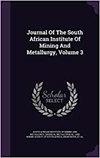基于机器学习的矿产资源估算综述
IF 0.9
4区 材料科学
Q3 Materials Science
Journal of The South African Institute of Mining and Metallurgy
Pub Date : 2023-01-17
DOI:10.17159/2411-9717/1250/2022
引用次数: 0
摘要
矿产资源估算在未来采矿运营的盈利能力中起着至关重要的作用。用于品位估算的传统地质统计学方法需要对空间统计学、资源建模、地质学、采矿工程以及干净验证的数据的专业知识、理解和知识,以建立准确的块体模型。然而,地质统计模型对数据的变化很敏感,必须在新获得的具有不同特征的数据上重建,这被证明是一个耗时的过程。近年来,机器学习方法被提出作为地质统计学方法的替代方法,以缓解这些方法在矿产资源估计中可能遇到的问题。本文对用于矿产资源估算的机器学习方法进行了系统的文献综述。这是对1990年至2019年期间发表的此类研究进行的。已经对几种机器学习方法的类型、性能和能力进行了评估,并与其他方法以及传统的地质统计学方法进行了比较。基于31项研究的结果表明,基于机器学习的方法优于传统的成绩估计建模方法。综述还表明,从探索到开发,在将机器学习应用于成绩评估方面有着积极的研究。如果要使用先进的机器学习技术,可以预期会有进一步的改进。本文章由计算机程序翻译,如有差异,请以英文原文为准。
Review of machine learning-based Mineral Resource estimation
Mineral Resources estimation plays a crucial role in the profitability of the future of mining operations. The conventional geostatistical methods used for grade estimation require expertise, understanding and knowledge of the spatial statistics, resource modelling, geology, mining engineering as well as clean validated data to build accurate block models. However, the geostatistical models are sensitive to changes in data and would have to be rebuilt on newly acquired data with different characteristics, which has proved to be a time-consuming process. Machine learning methods have in recent years been proposed as an alternative to the geostatistical methods to alleviate the problems these might suffer from in Mineral Resource estimation. In this paper, a systematic literature review of machine learning methods used in Mineral Resource estimation is presented. This has been conducted on such studies published during the period 1990 to 2019. The types, performances, and capabilities, of several machine learning methods have been evaluated and compared against each other, and against the conventional geostatistical methods. The results, based on 31 research studies, show that the machine learning-based methods have outperformed the conventional grade estimation modelling methods. The review also shows there is active research on applying machine learning to grade estimation from exploration through to exploitation. Further improvements can be expected if advanced machine learning techniques are to be used.
求助全文
通过发布文献求助,成功后即可免费获取论文全文。
去求助
来源期刊
CiteScore
1.50
自引率
11.10%
发文量
61
审稿时长
4-8 weeks
期刊介绍:
The Journal serves as a medium for the publication of high quality scientific papers. This requires that the papers that are submitted for publication are properly and fairly refereed and edited. This process will maintain the high quality of the presentation of the paper and ensure that the technical content is in line with the accepted norms of scientific integrity.

 求助内容:
求助内容: 应助结果提醒方式:
应助结果提醒方式:


